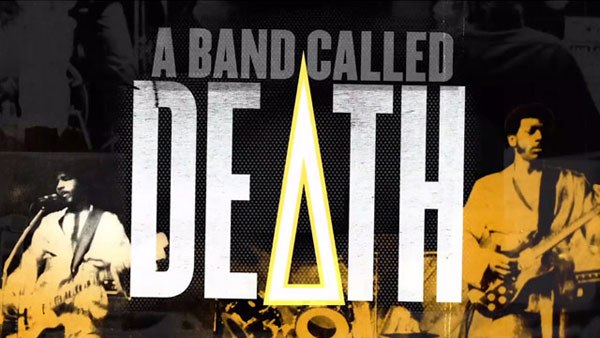
Recently, celebrity singer/songwriter Justin Bieber posted a partial Gospel to Instagram, and last week, author and radio host Dr. Michael Brown wrote a great article that fills in the gaps. It wasn’t so much that what Bieber posted was false, it was just incomplete, and an incomplete Gospel doesn’t save anyone. In fact, it makes me question whether Bieber himself is truly saved.
I understand that Bieber is still relatively new to the faith, if indeed his faith is genuine, so I wouldn’t expect him to know every facet of Christian doctrine. But the Gospel is a non-negotiable⸺anyone who calls himself a Christian ought to know it, know the importance of getting it right, and be able to communicate it clearly.
However, I don’t blame Bieber for preaching an incomplete Gospel, in fact I applaud both his initiative and his enthusiasm. At least he’s taking action, which is more than I can say for many so-called Christians.
The people I really blame are the fame-hungry pastors who seem to be more interested in riding the coattails of Bieber’s celebrity instead of discipling him. It’s no surprise that Bieber can’t fully articulate the Gospel when he follows inept pastors like Judah Smith, who teaches that people have a God-shaped hole in their hearts.
Bieber isn’t the only person who has trouble clearly articulating the Gospel, however. Many Christian testimonies lack a clear explanation of the problem of sin and the atoning work of Jesus’ sacrifice on the cross. Take this baptismal testimony for example. Again, I don’t fault these baby Christians for dropping the ball, because the people who are supposed to be setting the example are failing big time.
Case in point, North Point Community Church CEO Andy Stanley recently preached a series called “Welcome to Wonderland” in which he made several huge blunders. To set the tone, he kicked things off with an completely worthless statement: “This Christmas, as we remember the birth of Jesus, I want to invite you to re-invite Jesus back into the center of your worldview.” What does that even mean?
Then, he proceeded to twist Bible verses and tell flat-out lies:
- WRONG! The primary reason that Jesus was born as a human was to save us from our sins (Luke 19:10 and John 3:16-17). Jesus didn’t come to teach us facts about God, but to remove the barrier of our sin that was preventing us from living in eternity with God.
- I agree that God’s offer of salvation is open to anybody (Titus 2:11), but Andy’s summary comes dangerously close to universalism. It would really help if he explained that we must repent of our sins and put our faith in Jesus for the forgiveness of sins before we will receive eternal life.
- WRONG! The Apostle Paul makes it clear that although there’s plenty of evidence for everyone to believe that God exists, some people willingly suppress that truth by their wickedness (Romans 1:18-20). In addition, Paul clearly states that faith is the only reason we believe in God and follow Jesus (Romans 5:1-2).
For his closing arguments, Andy presented a partial Gospel. He said that God sent Jesus to stand with us so we wouldn’t have to wonder where we stood with Him. He also said that at the cross, God was demonstrating His love for us (Romans 5:8), so that the one thing we would never have to worry about and wonder about was His love for us.
Setting aside the twisted Bible verses, Andy’s version of the Gospel isn’t necessarily wrong, it’s just that it’s too vague. How can we fully appreciate the magnitude of Christ’s love for us if Andy never elaborates on how awful sin is, how holy God is, and how painful it would be to suffer eternal separation from God? Without a proper understanding of the danger we face, Jesus’ death on the cross is meaningless.
No doubt some will read this and think that I’m overreacting. If what both Bieber and Andy said was at least a portion of the truth, then doesn’t it bring people a step closer to the ultimate truth? Andy even mentioned sin in his Gospel presentation, so what’s the big deal?
As a Christian, you may not see the problem because someone has already connected the dots for you. When you read Bieber’s post or hear Andy’s sermon, your brain automatically fills in the gaps so that you hear the complete Gospel. But what about someone who isn’t yet saved? If faith comes from hearing the complete Gospel (Romans 10:17), then those who are unsaved must actually hear the complete Gospel preached at least once before it clicks for them.
The problem is that Bieber’s post and Andy’s sermon contain half-truths, and half-truths tend to inoculate people to the complete truth. This is part of the problem we face in Western culture⸺most people have already heard a partial Gospel, something like John 3:16, and when someone then tries to share the complete Gospel with them, they aren’t open to hearing it because they mistakenly believe that they’ve already heard it.
When we’re preaching the Gospel to someone, we can’t assume that they will connect the dots; we have to be very deliberate and communicate the whole truth. Pastors also bear a responsibility to repeat the full Gospel frequently, both to train their congregation on the proper method of sharing the Gospel and also to ensure that everyone in the congregation is truly saved.
Advertisements Share this:




